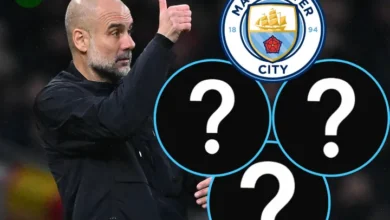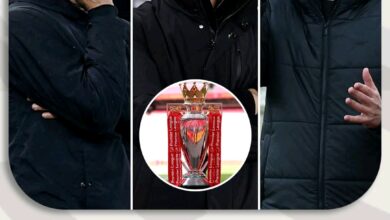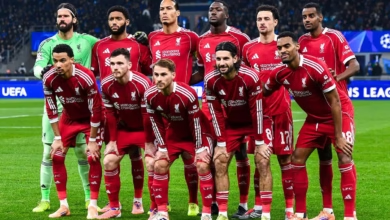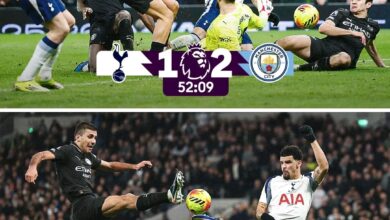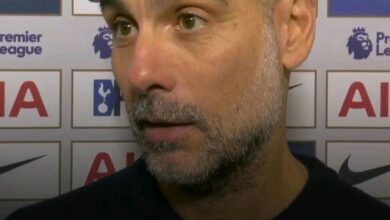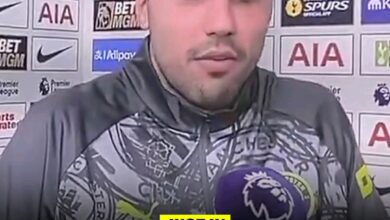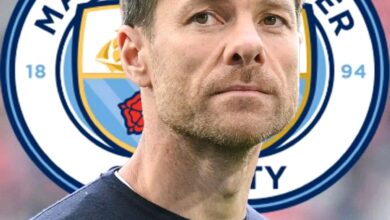Bettinelli joins Man City from Chelsea another transfer deal between City and Chelsea
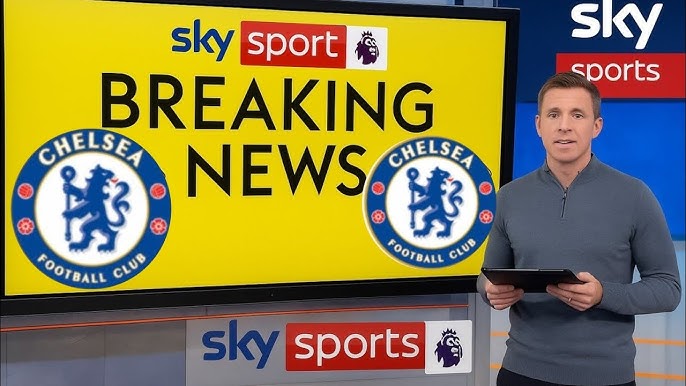
Manchester City find themselves at a pivotal juncture in their illustrious recent history. Following what many consider to be Pep Guardiola’s most challenging season since his arrival at the Etihad Stadium in 2016, the club has embarked on an ambitious summer transfer campaign that signals both a response to recent disappointments and a renewed commitment to maintaining their position at the pinnacle of world football.
The summer of 2025 has already witnessed significant movement in and out of the club, with the acquisition of Marcus Bettinelli from Chelsea representing just one piece of a much larger puzzle that Guardiola and the City hierarchy are carefully assembling. This comprehensive overhaul comes at a time when the club prepares for the FIFA Club World Cup, a tournament that, despite its commercial motivations, presents another opportunity for City to add silverware to their already impressive collection.
Marcus Bettinelli’s arrival at Manchester City on a one-year contract until 2026 represents a shrewd piece of business for a club that has always prided itself on meticulous planning and attention to detail. The 33-year-old goalkeeper brings with him a wealth of experience accumulated over a career that has seen him navigate the complexities of English football at various levels.
Bettinelli’s journey to the Etihad has been far from conventional. His time at Chelsea, which began in 2021, was marked by limited opportunities, with the goalkeeper making just a single appearance for the Blues. This lack of playing time, however, should not be viewed as an indication of his capabilities. Rather, it reflects the challenging nature of breaking into a squad already well-stocked with goalkeeping talent and the specific requirements that top-level clubs have for their custodians.
Strategic Importance of the Signing
The timing of Bettinelli’s arrival coincides perfectly with Scott Carson’s announced departure at the end of the month. Carson, who has served admirably as City’s third-choice goalkeeper, leaves behind a role that requires a unique set of attributes. The third-choice goalkeeper at a club of Manchester City’s stature must possess not only technical competence but also the mental fortitude to remain match-ready despite limited playing opportunities, the leadership qualities to contribute positively to training sessions, and the professionalism to support teammates while potentially sacrificing personal ambitions for the greater good of the squad.
Bettinelli’s appointment to this role represents more than a simple replacement. His experience, maturity, and understanding of the Premier League environment make him an ideal candidate to fulfill the multifaceted responsibilities that come with the position. As Guardiola continues to refine his squad, having reliable depth in every position becomes increasingly crucial, particularly as City prepare to compete across multiple competitions including the Club World Cup.
Personal Motivation and Professional Aspirations
Upon signing his contract, Bettinelli expressed sentiments that reveal both his personal ambition and his understanding of the opportunity before him. “It’s an honour to sign for City,” he stated. “I have admired from afar what this club have achieved since Pep Guardiola arrived and now, I am excited to be a part of building on that success.”
These words carry significant weight when considered in the context of his career trajectory. Having experienced the challenges of limited playing time at Chelsea, Bettinelli’s move to City represents not just a change of scenery but a renewed opportunity to contribute to a winning culture. His reference to admiring the club “from afar” suggests a genuine appreciation for City’s methodologies and achievements, indicating that his motivation extends beyond mere professional obligation.
The goalkeeper’s enthusiasm about working with Guardiola and goalkeeping coach Xabi Mancisidor reflects an understanding of the learning opportunities that await him. “I can’t wait to work with Pep, Xabi Mancisidor and the excellent goalkeepers already here and see their methods up close,” he continued. This attitude suggests that Bettinelli views his role not merely as a backup option but as an integral part of a system where every player contributes to the overall success of the team.
The Broader Transfer Strategy: Building for Multiple Fronts
Ait-Nouri: A £31 Million Investment in Versatility
Bettinelli’s signing represents Guardiola’s second acquisition of the summer, following the high-profile £31 million capture of Rayan Ait-Nouri from Wolverhampton Wanderers. This signing demonstrates City’s commitment to strengthening their squad with players who can adapt to Guardiola’s tactical requirements while providing the versatility needed to compete across multiple competitions.
Ait-Nouri’s arrival addresses several strategic needs within the City squad. His ability to operate effectively in multiple positions across the defensive and midfield lines provides Guardiola with tactical flexibility that has become synonymous with successful Manchester City campaigns. The significant investment in the player, particularly given the 50% sell-on clause that Angers retained when he initially joined Wolves in 2021, demonstrates the club’s confidence in his potential to make a meaningful impact.
The completion of Ait-Nouri’s signing following his medical examination last weekend represents the culmination of careful scouting and negotiation processes. City’s recruitment team, renowned for their thorough approach to player identification and acquisition, clearly identified specific qualities in Ait-Nouri that align with their tactical philosophy and long-term planning objectives.
Reijnders: Midfield Reinforcement from Serie A
The anticipated announcement of Tijjani Reijnders from AC Milan adds another dimension to City’s summer recruitment drive. The Dutch midfielder’s potential arrival signals Guardiola’s intention to maintain the high standards in central areas that have been crucial to City’s success over recent years.
Reijnders brings with him experience of competing at the highest levels of European football, having established himself as a key player for both club and country. His technical ability, tactical intelligence, and physical attributes make him well-suited to the demands of Guardiola’s system, where midfielders are expected to excel in both defensive and offensive phases of play.
The acquisition of a player of Reijnders’ caliber also reflects City’s proactive approach to squad management. Rather than waiting for weaknesses to emerge, the club appears committed to strengthening from a position of relative strength, ensuring that competition for places remains fierce and that tactical options remain varied.
Cherki: Youth and Potential from Ligue 1
Perhaps the most intriguing aspect of City’s summer transfer activity is the anticipated arrival of Rayan Cherki from Lyon. The 21-year-old’s potential signing represents a different type of investment, one focused on long-term potential rather than immediate impact.
Cherki’s impressive record of 185 appearances for Lyon despite his young age demonstrates both his talent and his experience of competing at senior level. City’s scouts, having monitored his progress over multiple seasons, have clearly identified qualities that suggest he possesses the attributes necessary to thrive in Guardiola’s system.
The young midfielder’s versatility and technical ability make him an attractive proposition for a club that values players capable of operating in multiple positions and adapting to various tactical requirements. His potential arrival would also align with City’s commitment to developing young talent while maintaining competitive standards across all age groups.
Club World Cup Preparations: A Tournament of Opportunities
Strategic Importance of the Competition
While the FIFA Club World Cup has often been characterized as little more than a commercial venture designed to generate revenue for FIFA, Manchester City’s approach to the tournament reflects a more nuanced understanding of its potential value. For a club with City’s ambitions, every competition represents an opportunity to add silverware to their collection while testing tactical approaches and squad depth.
Bettinelli’s inclusion in Guardiola’s Club World Cup squad, along with his imminent travel to the United States, demonstrates the practical implications of his signing. His presence provides essential depth in a competition where squad rotation may be necessary due to the compressed nature of the tournament format.
The tournament also presents an opportunity for City to showcase their new signings in a competitive environment while building the cohesion and understanding that will be crucial for success in the Premier League and Champions League campaigns that follow.
Tactical Considerations and Squad Management
Guardiola’s approach to the Club World Cup will likely reflect his broader tactical philosophy while accommodating the specific challenges presented by the tournament format. The availability of players like Bettinelli provides essential insurance against the unpredictability that can characterize knockout competitions.
The tournament also offers an opportunity for City to experiment with different tactical approaches and player combinations without the immediate pressure of domestic league competition. This experimentation could prove valuable as Guardiola seeks to integrate new signings while maintaining the tactical flexibility that has become synonymous with successful City campaigns.
Addressing Previous Disappointments: Learning from Adversity
Contextualizing the Previous Season
The characterization of the previous season as Guardiola’s worst since joining City in 2016 provides important context for understanding the club’s current transfer activity. While “worst” is a relative term for a club of City’s stature, the designation suggests that standards fell below the exceptionally high levels that have become the norm at the Etihad Stadium.
This relative disappointment appears to have galvanized both Guardiola and the club’s hierarchy, resulting in what has been described as the most aggressive summer transfer activity in recent memory. The description of City as the “hungriest in the market” suggests a renewed determination to reclaim their position at the summit of English and European football.
Strategic Response to Challenges
The comprehensive nature of City’s summer recruitment drive suggests a systematic analysis of the previous season’s shortcomings and a targeted response to address identified weaknesses. Rather than making wholesale changes, the club appears to be making strategic additions that complement existing strengths while providing solutions to specific challenges.
The variety of signings, from experienced professionals like Bettinelli to emerging talents like Cherki, demonstrates a multi-faceted approach to squad improvement. This strategy reflects an understanding that success in modern football requires depth, versatility, and the ability to adapt to changing circumstances throughout a long and demanding campaign.
Squad Dynamics and Personnel Changes
Departures and Their Implications
The anticipated departure of Jack Grealish represents one of the most significant potential changes to City’s squad composition. The £100 million signing from Aston Villa, who appears set to be excluded from the Club World Cup squad, finds himself in an increasingly precarious position within Guardiola’s plans.
Grealish’s situation highlights the unforgiving nature of competition at the highest levels of football. Despite his significant transfer fee and previous contributions, his current predicament demonstrates that no player is guaranteed a place in Guardiola’s system regardless of their cost or reputation.
The potential departure of such a high-profile player would have implications beyond mere squad numbers. It would signal Guardiola’s continued commitment to meritocracy while potentially freeing up resources for other areas of squad development.
Injury Concerns and Squad Depth
Mateo Kovacic’s absence from the Club World Cup due to Achilles surgery emphasizes the importance of having adequate depth across all positions. The Croatian midfielder’s unavailability highlights the unpredictable nature of football and the need for clubs to maintain sufficient quality throughout their squads.
Kovacic’s injury, combined with other potential departures, underscores the wisdom of City’s proactive approach to recruitment. By securing players like Reijnders and potentially Cherki, the club ensures that tactical options remain available regardless of injury concerns or other unforeseen circumstances.
Backroom Strengthening: The Lijnders Appointment
Strategic Importance of Coaching Staff
The appointment of Pepijn Lijnders to City’s backroom staff represents another significant development in the club’s summer overhaul. Lijnders, who served as Jurgen Klopp’s assistant at Liverpool since 2015, brings with him extensive experience of competing at the highest levels of English and European football.
His appointment is particularly significant given his intimate knowledge of Liverpool’s tactical approaches and his understanding of the competitive dynamics within English football. This insight could prove valuable as City seek to maintain their competitive edge against rivals who have consistently challenged their dominance.
Tactical Innovation and Development
Lijnders’ arrival also suggests Guardiola’s continued commitment to tactical evolution and innovation. By incorporating perspectives from different footballing philosophies, City can continue to refine their approach while remaining unpredictable to opponents who may have become familiar with their methods.
The Dutch coach’s experience of working with different player personalities and tactical systems provides additional depth to City’s coaching resources, potentially enhancing their ability to adapt to various challenges throughout the upcoming campaign.
Looking Forward: Expectations and Ambitions
Immediate Objectives
As City prepare for the Club World Cup and the upcoming domestic season, the integration of new signings will be crucial to their success. Players like Bettinelli, despite their specific roles, must quickly adapt to City’s methods and contribute to the collective pursuit of excellence.
The tournament in the United States provides an immediate test of how effectively new signings can be integrated into existing systems while maintaining the standards that have defined City’s recent success.
Long-term Strategic Vision
Beyond immediate competitions, City’s summer activity reflects a long-term strategic vision that encompasses both immediate competitiveness and sustainable success. The combination of experienced professionals and emerging talents suggests a balanced approach to squad development that considers both present needs and future requirements.
The club’s willingness to invest significantly in player acquisition while also strengthening coaching resources demonstrates a comprehensive commitment to maintaining their position among world football’s elite institutions.
Conclusion: A Summer of Transformation
Manchester City’s summer transfer activity, exemplified by signings like Marcus Bettinelli, represents far more than routine squad maintenance. The comprehensive nature of their recruitment drive, combined with strategic additions to their coaching staff, suggests a club determined to learn from recent disappointments while positioning themselves for sustained success.
Bettinelli’s arrival, though perhaps overshadowed by more high-profile signings, exemplifies the attention to detail that has characterized City’s approach to squad building under Guardiola’s leadership. His role as third-choice goalkeeper may seem peripheral, but his contribution to training standards, squad harmony, and tactical preparation could prove crucial to the club’s success across multiple competitions.
As City prepare for the Club World Cup and beyond, the success of their summer recruitment drive will ultimately be measured not by individual performances but by collective achievement. The integration of new signings like Bettinelli into the existing framework will be crucial to determining whether this summer of transformation translates into tangible success on the pitch.
The challenges ahead are significant, but City’s proactive approach to addressing identified weaknesses while building on existing strengths suggests a club well-positioned to reclaim their position at the summit of world football. In this context, even seemingly modest signings like Bettinelli’s represent important components of a larger strategic vision designed to restore Manchester City to their accustomed heights.







